Essential Live Performance Tips for Musicians
We quiz our tutors on their advice for getting the most from live gigs…
With live music now back on the agenda, it’s time for musicians, artists and performers to get themselves gig-ready.
From rehearsing to soundcheck, here are some essential tips from our tutors on how to make the most of any gig opportunities:
- Make the most of your soundcheck
- Be confident with what you know
- Learn to accept, understand and embrace your errors
- Invest in in-ear monitors
- Get a plan of action and stick to it
- Always consider the context of your performance
- Do a rehearsal on the same day as the show
- Be proud of your performance skills
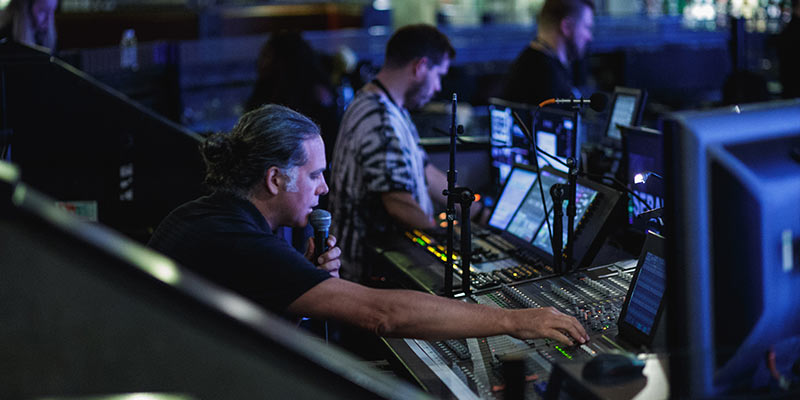
1.Make the most of your soundcheck
Soundchecks are exactly that: they are there for the engineer to check the sound.
They are not there for you to practice your latest licks or fills. So play like you will on the gig. Vocalists, ensure you are getting enough from your monitors and can hear yourself clearly. Make sure you sing at the volume you will sing on the gig, sing the first lines of your first song of the set and make sure you demonstrate the full range of your sound throughout the gig so the engineer can get a complete picture of how you will perform.
Drummers, play individual parts of the kit simply and consistently and only play the full kit when asked. Bassists/guitarists, make sure you demonstrate any pedals or sound changes you will be using on the gig.
Ben Jones, BMus Popular Music Performance, Programme Leader.
When soundchecking, make sure you take your time and play how you will be playing during the gig. Your sound on stage can make a massive difference to your gig, so be patient and work with the sound engineers to get the best possible sound.
Jon Harris, BMus Popular Music Performance, Drums Tutor.
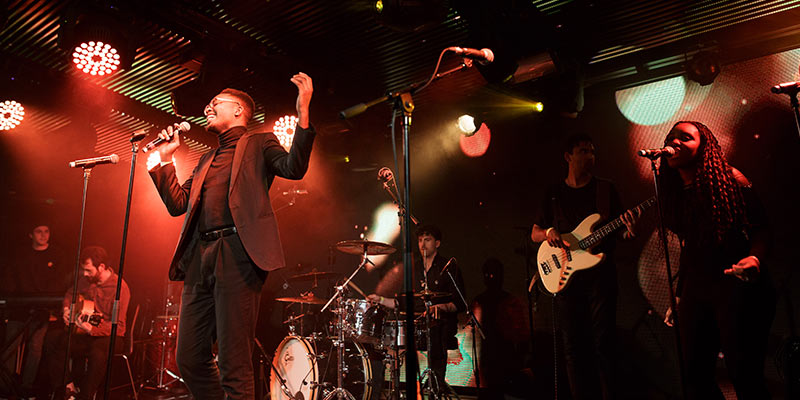
2. Be confident with what you know
There’s nothing more frightening than walking on stage with doubt in your mind.
Learn your lyrics, know your song arrangements, understand your equipment and work on your instrumental techniques.
Vic Byne, BMus Popular Music Performance, Vocal Tutor.
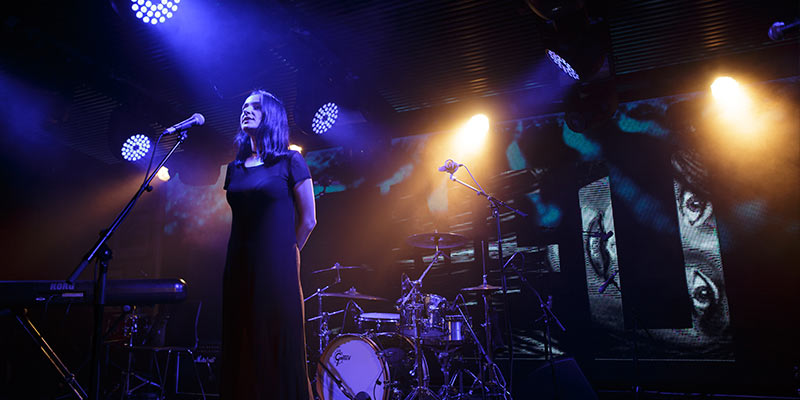
3. Learn to accept, understand and embrace your errors
The social media age and platforms such as Instagram can falsely present music as this perfect 30 second slice of action. Music is not, and should never try to be, perfect.
Of course, we should minimise any mistakes if they are going to detract from the overall performance, but the pressure of trying to avoid stage errors can lead to more happening! If/when errors happen try to relax and just keep going."
The worst thing you can do is stop playing/singing/performing.
Look to the band leader or MD if things have really fallen apart and work together with your band mates to keep the show on track. 99.9 percent of your audience is not going to notice a mistake unless it is really bad. They will however notice you stopping, so keep going! Always focus on practicing intros, outros and any transitions in your rehearsals. Most audiences will forgive errors in the middle of a song if it starts and ends with confidence.
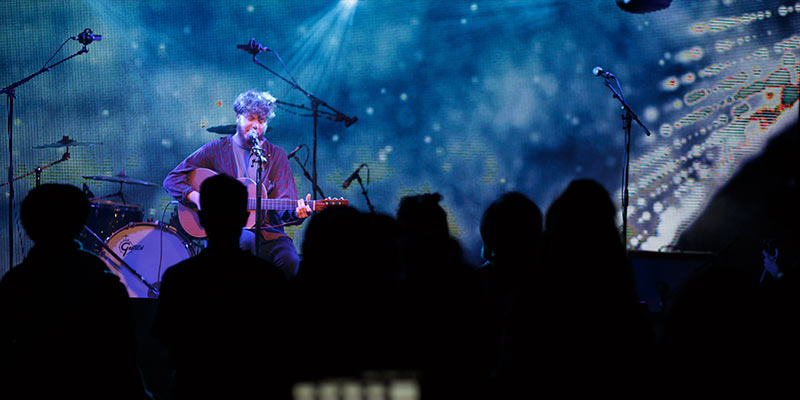
4. Invest in in-ear monitors
My biggest performace tip is to get in-ear monitors.
Performing is difficult when you can't hear what you are doing. So if you have in-ear monitors you know that you will always be able to hear what you are playing, regardless of whatever PA gear the venue has. Using them takes a lot of stress out of soundcheck because you can control your own monitoring.
Since I started using them, I have been telling the venue sound engineer to not put anything through the on-stage monitors - this way I get no feedback through my vocal microphone (which used to be an issue when I previously performed).
Lia Mice, BA Creative Music Production Tutor.

5. Get a plan of action and stick to it
Every song will have its own mood, passion and narrative, so you must get into that moment. Be a part of the story you’re telling. Deliver a kaleidoscope of textures and primal moods, so every performance will be yours with belief, commitment and passion.
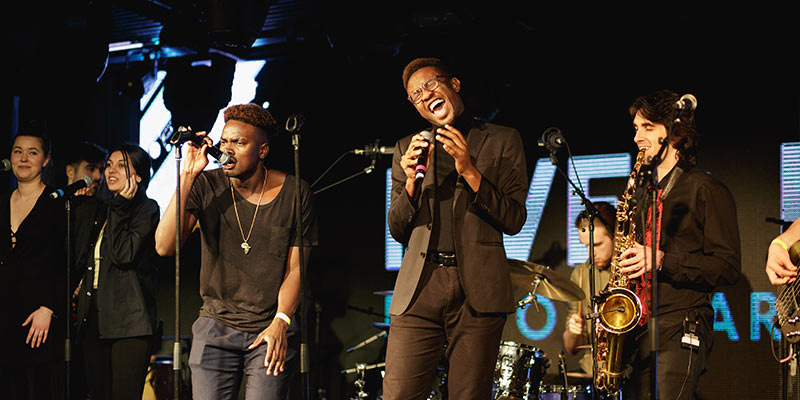
6. Always consider the context of your performance
What is the purpose of this performance? Is it to make the audience dance? Is it an intimate performance requiring more sonic connection than physicality?
Performance is all centred around context and when you understand that context you have a much better opportunity to connect to your audience. Ask yourself the question "What do I want the audience to feel during and after this performance?"
You can then engineer your performances to match those original intentions. These are the key questions that as an MD I ask any artist I work with to ensure there is a clear consideration for what they are trying to achieve in their performances. Disconnection in performance commonly comes from a lack of intention, awareness and context. Make sure you think about these things before getting onstage. Experiment in rehearsals, discuss with your band mates and try to get a feel for what your audience expects from you as a performer and then balance that with your own individual intentions.
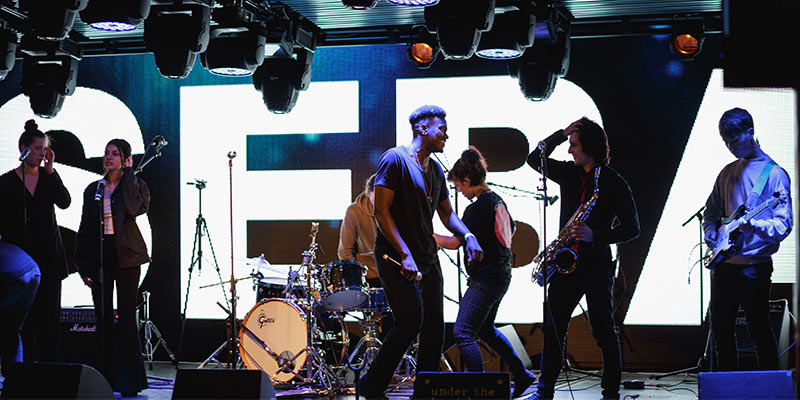
7. Do a rehearsal on the same day as the show
Another tip is to do a full rehearsal on the same day as the show. Then pack your gear up and take it directly to the venue. When I do it this way I know that all my gear has made it to the venue with me. Sometimes if I need to pack my gear up without playing my set, I forget something that I need. But if I rehearse first then pack up my rehearsal it's less likely that I will forget something!
Similarly, when I perform live I request that I can leave my gear set up on stage after sound-check. This way I know that it is all working and in the right position.
Some venues ask you to set up for soundcheck, then move your gear, then move it back onto the stage when you perform but I don't agree to doing this anymore because it is too stressful."
Removing the stress of a show is the best way to do a great performance!
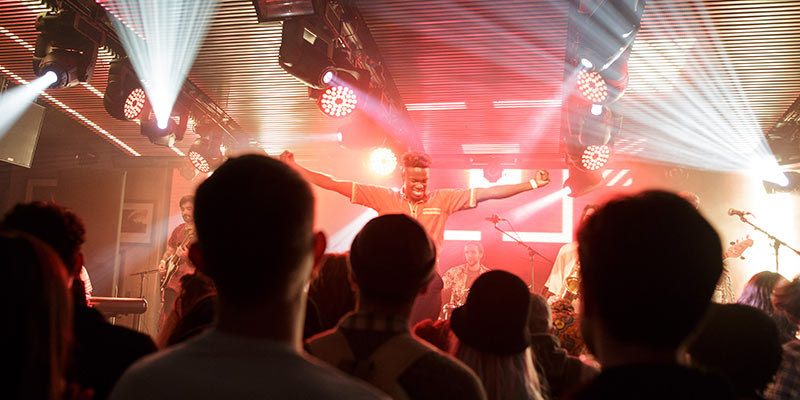
8. Be proud of your performance skills
Like and love your instrument. Never be afraid of what you can do. Push yourself to enter unopened doors in your delivery and continue to be true in your performance.
Vic Byne.
Become a well-rounded and employable musician
At ICMP, we take your career in music as seriously as you do. Our pioneering music degree courses see you tackle advanced technical and performance challenges, and learn innovative skills to get you ahead and prepare you for your musical future.
To completely immerse yourself in your music career, email our friendly Admissions Team at enquiries@icmp.ac.uk or call them on 020 7328 0222.
BMus Popular Music Performance
At ICMP, we take your career in music as seriously as you do. Our pioneering music degree courses see you tackle advanced technical and performance challenges, and learn innovative skills to get you ahead and prepare you for your musical future.
To completely immerse yourself in your music career, email our friendly Admissions Team at enquiries@icmp.ac.uk or call them on 020 7328 0222.






